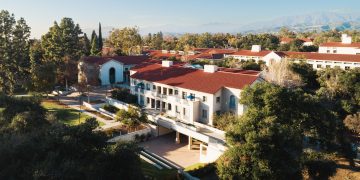20 Important Questions to Ask During a College Visit
A college visit is one of the best ways to decide whether a school is truly the right fit—but only if you know what to ask. Tours are designed to highlight the best parts of campus, which means it’s easy to leave with a good feeling but very little concrete information.
The questions below are designed to help you look beyond first impressions and understand how a college actually supports its students—academically, socially, and after graduation. You don’t need to ask every question at every school. Instead, choose the ones that matter most to you and ask the same core questions at each visit so you can compare schools clearly afterward.
How to Use These Questions on a College Visit
- Choose 5–10 questions per visit rather than trying to ask all of them
- Ask questions of different people when possible (tour guide, admissions staff, current students)
- Write down answers shortly after the visit while details are fresh
- Ask the same key questions at every campus to make comparisons easier
The goal isn’t to find a “perfect” school—it’s to find the school that fits you best.
Academics & Advising
- What is the average class size?
Class size affects how much interaction you’ll have with professors. Smaller classes often allow for more discussion and individualized attention. - What is the student-to-faculty ratio?
This can indicate how accessible professors are outside of class and how personalized academic support may be. - How accessible are professors outside the classroom?
Ask about office hours, advising availability, and whether faculty typically mentor undergraduate students. - How are students advised within their major?
Find out whether advising is centralized, faculty-based, or handled by professional advisors—and how often students meet with them. - What percentage of students graduate within four years?
Graduation rates can signal how effectively a college supports students from enrollment through completion.
Experiential Learning & Career Outcomes
- What kinds of internships, research, or hands-on learning opportunities are available?
Look for structured programs that help students gain experience before graduation. - How does the college help students find internships or applied learning opportunities?
Ask whether support is proactive or student-driven and what resources are available. - What types of jobs do graduates typically pursue?
Try to learn about common career paths, not just standout success stories. - How quickly do graduates find employment after graduation?
This is especially important if you expect to rely on income soon after college. - How active is the alumni network?
Strong alumni involvement can lead to mentoring, networking, and job opportunities.
Student Support & Academic Resources
- What tutoring or academic support services are available?
Ask whether tutoring is free, how easy it is to access, and which subjects are supported. - How easy is it to access advising or counseling services?
Support services matter most when they’re easy to use, not just available on paper. - What study spaces are available, and are any open late or 24/7?
Access to quiet, safe study spaces can make a big difference during busy weeks. - How does the college support students who are struggling academically?
Look for early-alert systems, academic coaching, or structured intervention programs.
Campus Life, Housing & Safety
- What is on-campus housing like, and how many students live on campus?
Housing plays a major role in your day-to-day experience, especially during your first year. - What student organizations and activities are most popular?
Ask about clubs, athletics, arts, and community involvement—both on and off campus. - How safe is campus, and how are emergencies handled?
Learn about campus security, emergency alerts, and safety resources. - What transportation options are available for students?
This is especially important if you won’t have a car on campus.
Cost, Financial Aid & Value
- What percentage of students receive financial aid, and what does it typically include?
Understanding the mix of scholarships, grants, loans, and work-study can help set realistic expectations. - What is the average net price after financial aid?
Net price—not sticker price—is the best indicator of what families actually pay.
Final Thoughts
College visits aren’t about being impressed—they’re about being informed. Asking thoughtful questions can help you understand how a school supports its students academically, personally, and professionally. By focusing on substance rather than surface-level impressions, you’ll be better equipped to choose a college where you can thrive.




